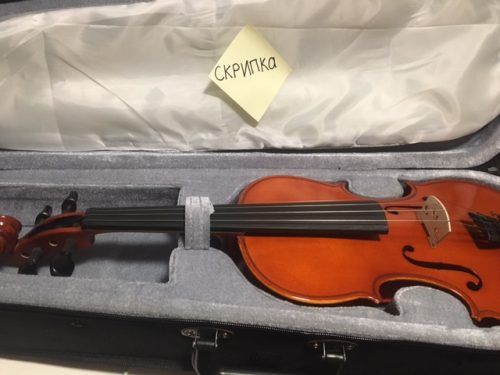5 Crazy Language Learning Tricks To Boost Your Skills
There are loads of neat little tricks and hacks that you can use to boost your vocabulary in your target language, or get yourself acclimatized to speaking it. These are things you may never have considered. Over time you’ll come up with some of your own. For now, though, these are just some of the ones I use.
Hack 1 – Translating
I don’t often hear people in the language community mention this cool hack, which is odd because it has proven very useful in building vocabulary.
Translating is a great way to expose yourself to new vocabulary in different contexts, and to get you used to expressing yourself in different ways. You’ll be using the dictionary a lot and analyzing your chosen text in order to find the most effective way of translating it.
Translating, in this respect, is much more powerful than simply reading and looking up words, then moving on. You spend more time with the text, and give it much more consideration, thereby greatly increasing the chances of the vocabulary sticking in your memory.

What should you translate?
Songs and poems
These are a great place to start as they’re short and won’t overwhelm you. They also shouldn’t have too much difficult vocabulary, and much of it should be in everyday usage, thus relatively applicable to you.
Scripts/screenplays
Next, move on to scripts, screenplays or teleplays, if you can find them. This might be a little tricky in most languages outside of some popular European ones. A decent compromise would be finding subtitle files for movies and TV shows. These can be downloaded as .srt files and read in word processors or text editors.
This post by Help Desk Geek lists the top 6 sites that host subtitle files.
Screenplays and teleplays are useful because the language is very economical and to the point, and characters usually use everyday, conversational dialogue, which makes them ideal for boosting your conversational vocabulary.
Books
You should then move on to translating short stories, and gradually work your way up to longer stuff. You’ll get the biggest boost here, as you’ll be introduced to different tenses and plenty of adjectives that will add color to your lexicon.
Translate to and from your target language
This is the other neat thing about translating: you can translate both ways, either from your target language to your native one, or vice versa, and you’ll get loads out of doing it both ways.
I recently embarked on an exciting but intensive exercise of translating English to Esperanto. The story was only short, under 4000 words, but the amount of Esperanto I learned was staggering. I was forced to find the best ways to convey the message of the original story, which meant looking up and understanding a humongous amount of vocabulary.
Hack 2 – Put sticky notes on everything!

This one’s fun, and a great way to help you remember household items. You should put sticky notes on all of the furniture and appliances, but only write them in your target language, without a translation.
Every time you see and use the item, say the word in your new language. You’ll pick up the words very quickly and commit them to your long term memory.
Mix things up and use different colored sticky notes for different types of words.
Hack 3 – Pretend you don’t speak English when abroad
The problem many English speakers face is that English is so widely used and known, that in most places you’ll find someone who speaks at least a little, and will thus proceed to speak to you in it, no matter what their level. This unfortunately robs you of the opportunity to practice your new language skills.
The solution? Pretend you don’t speak English! Pretend your first language is something obscure that they likely wouldn’t know, and force them (and yourself) to communicate in their language.
Hack 4 – Speak to your pets in your new language

This assumes, of course, that you have pets. If you don’t, skip this and just speak to yourself. If you do, however, make a habit of speaking to them in your target language as often as you can, and turn them multilingual too!
Everyone talks to their pets. So whatever you usually say to them, say it in your new language. It will be slightly more powerful than talking to yourself, as you will get the feeling that you’re having a conversation (albeit one-way). If your pets suddenly start talking back, run!
Hack 5 – Write a monologue or play then act it out
When you start learning a new language, you should always try to hone all 4 language skills, in order to gain fluency. There aren’t many activities that enhance all 4 simultaneously, but this hack does, which is why it’s extremely powerful and should be attempted at least once.
Writing your own monologue or play then performing it will improve your reading, writing, listening and speaking skills – a four-pronged attack that is sure to take your language skills to the next level.

Firstly, through reading, you’ll research the words and phrases you’ll need to write your piece. Then, through writing, you’ll get used to forming sentences and expressing yourself more efficiently.
Next, you’ll listen to native content in order to get your pronunciation and inflections right. And finally, you’ll practice speaking over and over in order to perform and perfect the piece.
It will be a lot of work, but it should also be lots of fun. If you want, you can also record yourself – with video or audio – and keep it as a sign of your progress. When you watch/listen to it a few months later, you’ll be able to see how much you’ve improved.
Going forward
I hope some of these little hacks will be as helpful to you as they have been to me. Over the course of your language learning journey you’ll find new ways of doing things that are unconventional but effective. If they work for you, use them to your heart’s content.
Why don’t you share some of them in the comments section and pass on your language learning wisdom?





